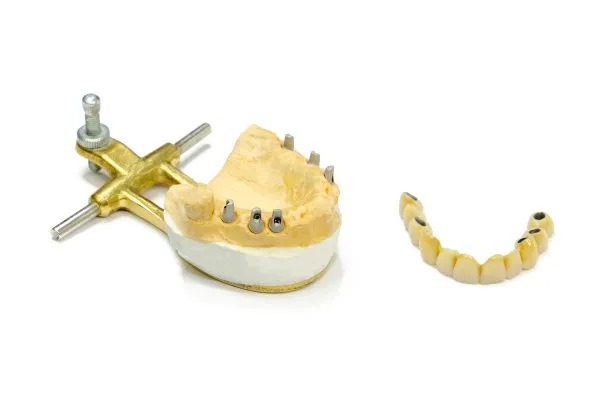Summary: Ensuring a successful dental filling procedure is essential for maintaining long-lasting oral health. This article outlines key precautions that patients must take to optimize their dental treatment experience and achieve the best possible outcomes. With a focus on proper preparation, following post-procedure guidelines, choosing the right fillings, and maintaining regular dental visits, we provide comprehensive insights that empower patients to take control of their oral health. By understanding and implementing these precautions, individuals can enhance the longevity of their dental fillings and reduce the risk of complications.
1. Proper Preparation Before Your Appointment

Before undergoing a dental filling procedure, proper preparation is crucial for achieving successful results. It begins with ensuring that your dentist fully understands your dental history, including any allergies, previous dental work, and existing health issues. This information allows for a tailored approach to your treatment.
Additionally, discussing any fears or anxieties with your dentist can lead to a more comfortable experience. Dentists often have techniques to alleviate anxiety, such as sedation options or engaging in distraction methods. Feeling relaxed can significantly affect the outcome of the procedure.
Lastly, maintaining good oral hygiene leading up to your appointment is essential. Brushing and flossing regularly reduces bacteria in the mouth and prepares the affected area for treatment, ultimately leading to a smoother filling process.
2. Following Post-Procedure Guidelines
Post-procedure care is just as important as preparation, as it directly influences the longevity of your dental fillings. After your filling appointment, your dentist will likely provide specific aftercare instructions. It is essential to follow these guidelines closely to prevent complications such as sensitivity or prolonged pain.
Avoiding hard or sticky foods for at least 24 hours post-treatment can help ensure that the filling sets properly without interference. Be mindful of the types of food and beverages consumed; acidic items can irritate the area, complicating recovery.
Additionally, maintaining oral hygiene after a filling is critical. Gently brushing your teeth, starting the day after the procedure, can help keep the area clean. Though it may be tempting to neglect oral care due to sensitivity, this habit promotes healing and reduces the risk of further decay.
3. Choosing the Right Filling Material
Understanding the various filling materials available can play a significant role in the success and durability of your fillings. Common materials include amalgam, composite resins, gold, and porcelain. Each has its advantages and disadvantages, making it imperative to discuss these options with your dentist.
Amalgam fillings are noted for their strength and durability, making them suitable for back teeth. Conversely, composite resins are favored for their aesthetic appeal, as they can be color-matched to your natural teeth. If appearance is a priority, composites may be the preferable choice for front teeth.
Additionally, knowing the longevity and potential drawbacks of each material can help you make informed decisions, while also considering your lifestyle and dental habits. Your dentist can guide you on the best options based on your individual needs.
4. Regular Dental Visits for Maintenance
One of the most effective precautions to ensure the longevity of dental fillings is maintaining regular dental visits. Scheduling check-ups every six months allows for early detection of any problems that might compromise your fillings or overall oral health.
During these visits, your dentist can thoroughly examine the condition of your fillings as well as the surrounding teeth and gums. Identifying potential issues, such as recurrent decay or gum disease, can result in timely interventions that prevent more serious conditions from developing.
Regular dental cleanings also play a vital role in optimal oral health. They remove plaque and tartar buildup that can contribute to decay around fillings and other dental work, ensuring your mouth remains healthy and your fillings last longer.
Summary:
Taking necessary precautions before, during, and after a dental filling procedure is vital to ensure its success and maintain long-lasting oral health. Proper preparation, compliance with post-procedure care, careful selection of filling materials, and regular dental visits all contribute to achieving the best outcomes in your dental care journey. By embracing these practices, patients can enjoy healthier smiles and enhanced dental longevity.
This article is compiled by Vickong Dental and the content is for reference only.
Vickong Dental
Vickong Dental is a large medical group established in Hong Kong in 2008 by professors from well-known medical universities in Guangdong and Hong Kong, as well as medical doctors from key national '985' universities (including Master's supervisors and senior professors). The chain of branches brings together expert dentists with PhDs and Master's degrees from Hong Kong and Mainland China, committed to providing high-quality dental treatment.
"Vickong Dental Practices the University Motto of 'Healing and Serving Society,' with a Stable Operation for Sixteen Years. It Has Been honored with Hong Kong Enterprise Leaders's Choice,' and is a Global Trusted Implant Center for the Nobel Implant System. Recommended by Hong Kong Metro Broadcast and Guangdong Television, it Serves Customers from Over Thirty Countries and Regions, Gaining the Trust and Favor of Citizens from the Guangdong-Hong Kong-Macau Greater Bay Area and Surrounding Cities.

Thousands of customers' unanimous praise
The most recognized and highly recommended dental service by customers in the Guangdong-Hong Kong-Macau Greater Bay Area
We Ensure You Receive Detailed Care and Attention Here
Hong Kong standards, Shenzhen prices, Your Trusted English-speaking dentists

Vickong Dental Medical-Grade Instrument Disinfection Process
Vickong Dental Medical-Grade Instrument Disinfection Process

Vickong Dental Chain: A Warm and Comfortable Environment for Treatment






Appointment Hours

Q&A
Why choose Vickong Dental?
Vickong Dental practices the university motto 「Medicine to Benefit Society」, with each branch bringing together highly qualified dentists with doctoral and master’s degrees from Hong Kong and the Mainland, and has maintained seventeen years of steady operation。Recipient of 「2024 Hong Kong Enterprise Leaders Brand」, 「2025 Hong Kong Enterprise Leaders Brand」, a Nobel Biocare Global Trusted Implant Center, and a brand recommended by Metro Radio Hong Kong and Guangdong TV。
To date, we have served customers from more than thirty countries and regions,earning exceptionally high word-of-mouth recognition and trusted recommendations from residents across the Guangdong-Hong Kong-Macao Greater Bay Area and surrounding cities
We have eight major branches in Zhuhai、Shenzhen,and a consultation and service assurance center in Hong Kong,so you can book a free consultation at any time for any questions,which is very reassuring.
If I do not accept the quotation after the CT scan, will I be charged??
No! As long as the actual treatment has not started, you will not be charged any fees.
Will there be any additional charges during the treatment process?
No, there won’t be any additional charges. Before treatment begins, we will clearly explain the treatment plan and its corresponding fees. Only after the patient agrees and signs the consent form will we proceed with the dental service.
Can I pay in Hong Kong dollars?
Yes. Vickong Dental accepts payment in Hong Kong dollars. The amount will be converted based on the exchange rate of the day, and the applicable rate will be clearly communicated to you in advance.
Can I reschedule my appointment at any time?
Yes. Please contact us via **WeChat** or **WhatsApp** as early as possible, providing your original appointment time and details, along with your preferred new date and time slot for rescheduling.













